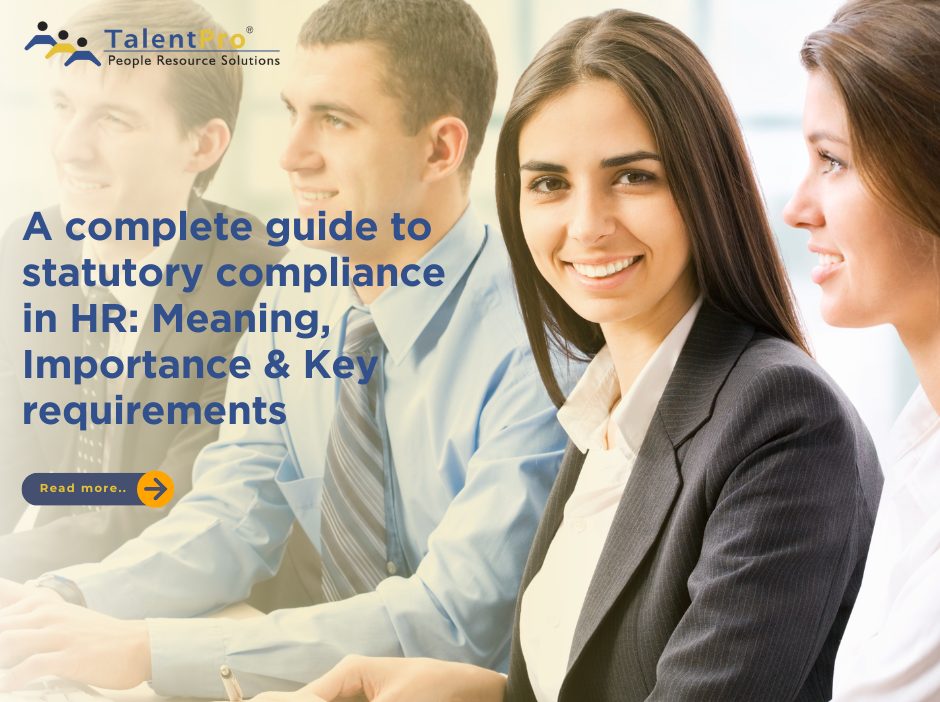Labour law compliance refers to the process of ensuring that a business or organization adheres to all the relevant labour laws and regulations governing employment practices in a specific jurisdiction. These laws are put in place to protect the rights and interests of workers and to maintain fair and ethical working conditions. An end-to-end guide for labour law compliance would be quite comprehensive, as it would cover all the aspects necessary to ensure compliance with labour laws from the hiring of an employee to their termination or resignation. While it’s not possible to cover every detail in a single response, I can outline the general steps and key considerations involved in labour law compliance. Keep in mind that the specifics may vary depending on your country and region. Always consult with legal experts for advice tailored to your situation. Here’s a broad overview:
- Understanding Applicable Labor Laws: Identify the labour laws and regulations that apply to your business based on its location, industry, and number of employees. These laws typically cover minimum wage, working hours, leave entitlements, employee benefits, health and safety, discrimination, termination, and more.
- Creating Employment Contracts: When hiring new employees, prepare written employment contracts that comply with the relevant labor laws. Contracts should outline terms of employment, compensation, benefits, working hours, leave policies, and other essential details.
- Minimum Wage Compliance: Ensure that you pay your employees at least the minimum wage mandated by the law. Some regions may have different minimum wage rates for various categories of employees.
- Working Hours and Overtime: Track and manage employees’ working hours to comply with laws governing maximum working hours and overtime pay. Different jurisdictions may have different rules on weekly and daily working hours, rest breaks, and overtime calculations.
- Leave Policies: Implement leave policies that adhere to the labor laws, including annual leave, sick leave, maternity/paternity leave, and other statutory leave entitlements.
- Employee Benefits: Offer the appropriate employee benefits required by law, such as health insurance, pension contributions, and social security benefits.
- Health and Safety Compliance: Establish and maintain a safe working environment, complying with occupational health and safety regulations. Conduct regular safety training and inspections to mitigate workplace risks.
- Anti-Discrimination and Harassment: Ensure that employment decisions are free from discrimination based on race, gender, religion, disability, etc. Implement policies and procedures to prevent and address harassment in the workplace.
- Record Keeping: Maintain accurate records of employee information, contracts, working hours, leaves taken, wages paid, and other relevant documents as required by law.
- Employee Representation and Trade Unions: Understand and comply with laws related to trade unions, collective bargaining, and employee representation rights, where applicable.
- Termination and Resignation: Follow proper procedures when terminating employees or handling their resignations, adhering to labor laws regarding notice periods, severance pay, and exit formalities.
- Regular Compliance Audits: Conduct regular audits of your HR practices and policies to identify and rectify any areas of non-compliance.
- Keep Up with Law Changes: Labor laws are subject to change over time. Stay updated with the latest legal developments and adjust your policies accordingly.
- Legal Advice and Consultation: Consider seeking legal advice or consulting with HR professionals to ensure comprehensive labor law compliance and to address any specific concerns or complexities.
Read more: (Labor-Related Statutory Compliance In HR)
Importance of Labour compliance in 2024:
Remember that labor law compliance is an ongoing process that requires vigilance and dedication. Failure to comply with labor laws can lead to legal consequences and damage to your business reputation. Therefore, it’s crucial to prioritize compliance and make it an integral part of your company’s operations.
In 2024, as in any other year, labor law compliance in India remains of paramount importance for several reasons:
- Protection of Workers’ Rights: Labor laws are designed to safeguard the rights and interests of workers, ensuring they are treated fairly, receive appropriate compensation, work in safe conditions, and are protected from discrimination and harassment. Compliance with labor laws ensures that workers are treated with dignity and respect.
- Legal Consequences: Failure to comply with labor laws can lead to severe legal repercussions, including fines, penalties, and potential lawsuits. In some cases, non-compliance may even result in the suspension or closure of a business. Staying compliant is essential to avoid such negative consequences.
- Employee Retention and Attraction: A company that adheres to labor laws is likely to attract and retain top talent. Employees are more likely to stay with an employer who respects their rights and offers a safe and inclusive work environment.
- Increased Productivity and Engagement: Compliant and content employees tend to be more productive and engaged in their work. When workers feel protected and fairly treated, they are more likely to be motivated and dedicated to their jobs.
- Global Supply Chain Compliance: For companies operating in a global marketplace, compliance with labor laws is crucial. Many countries have stringent labor regulations, and businesses need to ensure compliance throughout their supply chains to avoid reputational damage and potential legal issues.
- Changing Labor Landscape: The labor landscape is continually evolving, with new laws and regulations being introduced or amended. Staying compliant enables businesses to adapt to these changes proactively and maintain a competitive edge.
- Avoiding Employee Litigation: Labor law compliance can significantly reduce the risk of facing employee-initiated lawsuits, such as wrongful termination, discrimination claims, or wage disputes.
- Government Oversight and Audits: Government agencies regularly conduct audits and inspections to ensure businesses are complying with labor laws. Compliance minimizes the risk of penalties or sanctions during these audits.
- Ethical Responsibility: Complying with labor laws is not just a legal requirement; it’s an ethical responsibility. Treating employees fairly and adhering to labor regulations is the right thing to do, fostering a positive work culture and overall social responsibility.
Read more: (SEZs and Labour Law Compliance: Protecting Worker Interests)
Overall, labor law compliance is a vital aspect of responsible and sustainable business practices. In 2024 and beyond, companies that prioritize the well-being of their employees and demonstrate a commitment to compliance are likely to thrive in an increasingly competitive and socially conscious business environment.
Wrap-up:
TalentPro and similar organizations specialize in providing comprehensive support for establishing, evaluating, and reinforcing your compliance management program. They excel in monitoring and assessing the program’s effectiveness amidst ever-evolving requirements and emerging risks. Our guide breaks down the key requirements and helps you navigate the complexities with ease.









